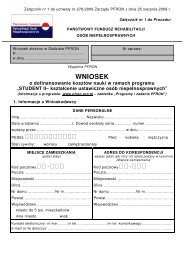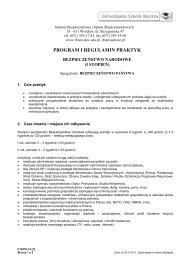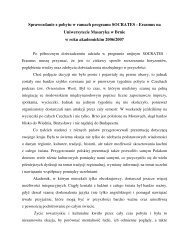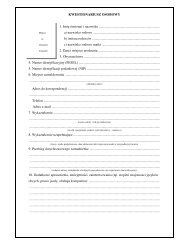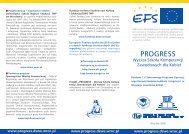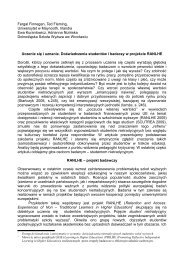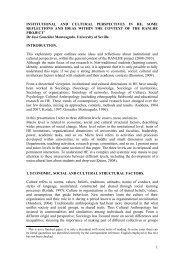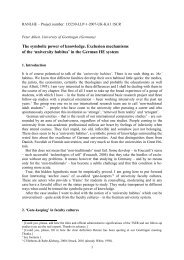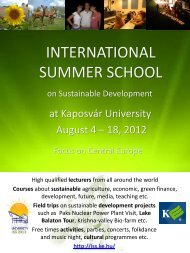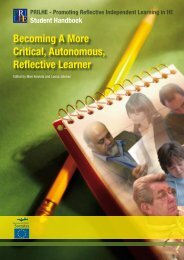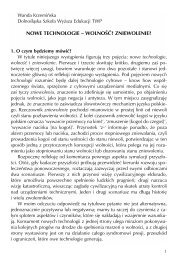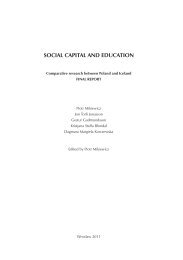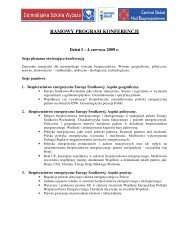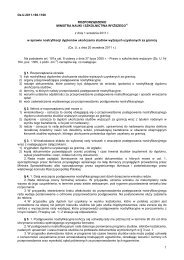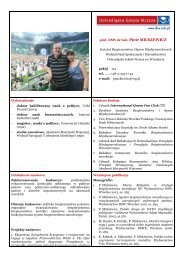Becoming A More Critical, Autonomous, Reflective Learner
Becoming A More Critical, Autonomous, Reflective Learner
Becoming A More Critical, Autonomous, Reflective Learner
You also want an ePaper? Increase the reach of your titles
YUMPU automatically turns print PDFs into web optimized ePapers that Google loves.
PRILHE Project - Lecturer’s Toolkit<br />
3.6 Use of Case Studies<br />
Case studies, as a teaching approach, actively engage students in the learning process. Importantly they are a useful tool for<br />
helping students to understand theoretical and conceptual issues in an applied situation. Fry et al (1999) define case studies (as<br />
used in higher education teaching) as ‘complex examples which give an insight into the context of a problem as well as topics that<br />
demonstrate theoretical concepts in an applied setting’ (quoted by Davis & Wilcock, 2006 www.materials.ac.uk/guides/<br />
casestudies.asp) According to Mustoe and Croft (1999) the use of case studies in teaching increases the motivation and interest of<br />
students.<br />
Davis & Wilcock (2006: 2) maintain that case studies:<br />
•<br />
• encourage active learning<br />
•<br />
•<br />
allow the application of theoretical concepts to be demonstrated, thus bridging the gap between theory and practice<br />
provide an opportunity for the development of key skills such as communication, group working and problem solving<br />
increase the students’ enjoyment of the topic and hence their desire to learn.<br />
Non-traditional mature students often like to have a practical reference point or context in which to make sense of theory. Relating<br />
back directly to personal experience can be productive but it also raises problems about how this experience should be used (see<br />
3.7). For example, some students can become trapped in their own experience to the extent that they do not question their<br />
underlying assumptions and cannot see other perspectives clearly.<br />
In this context, the use of ethnographic case studies can be a fruitful approach, more particularly in the social sciences. It helps to<br />
give students a practical context in which to develop their ideas but avoids being focused exclusively on one particular experience.<br />
It also helps students to get different perspectives on key issues.<br />
I think trying to get people to find material which is close to them, in some ways in their experience and yet perhaps<br />
challenges some of their assumptions – it’s no good just representing another point of view in the abstract or from a<br />
long way away. In the Sociology of work for instance there’s a whole range of quite rich ethnographic case studies. I<br />
think these can be very fruitful for mature students to engage with. They’re entrenched as it were. It’s very<br />
difficult for them to stepback. An obvious truism is that mature students vary tremendously in both their areas of<br />
interest and their abilities. Engaging with their experience is not all straightforward and positive.<br />
(Lecturer, UK)<br />
Using Case Studies in Research: a German example<br />
Students in the Department of Education at Goettingen University have the opportunity to attend a one-year practical training in<br />
research as part of their studies. In the first part of the practical training the students work out theoretical interrelations between<br />
different research methods (with emphasis on qualitative, in particular ethnographic research methods) in collaboration with the<br />
lecturers in charge. This is reached by lectures, reading and discussing texts and group work on chosen subjects. Experiences<br />
made in similar courses show that this kind of preparation meets the demands of these students that wish to have a<br />
methodological toolbox before they go into the field; besides this it conveys the necessary theoretical basics.<br />
Many students feel insecure about doing research on their own for the first time. This insecurity consists of the fear not to know<br />
enough in the sense of “factual knowledge” (and knowing facts is still demanded at the university, so it is students’ reality that<br />
must not be ignored) or a general insecurity about giving research a try and not fulfilling scientific demands.<br />
32<br />
<strong>Becoming</strong> A <strong>More</strong> <strong>Critical</strong>, <strong>Autonomous</strong>, <strong>Reflective</strong> <strong>Learner</strong>



